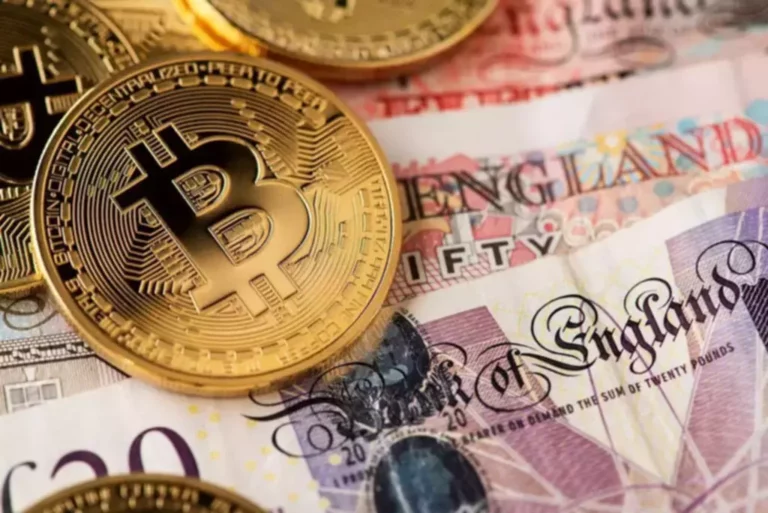Content
Many newcomers struggle with “what is a crypto exchange vs wallet.” Did you know that 86% of crypto users rely on both exchanges and wallets? This article breaks down their key https://www.xcritical.com/ differences, helping you choose the right tools for your crypto journey. Centralized exchanges offer high liquidity, a wide range of trading pairs, and simplified processes but require users to trust the exchange. Once you have assessed your needs and goals, it’s time to evaluate the available options. When considering a crypto wallet, you should look for a wallet that supports the cryptocurrencies you plan to hold.
Different Types of Crypto Wallets

On Decentralized finance the other hand, a crypto exchange is mainly used for buying, selling, and trading cryptocurrencies. It provides a platform for users to exchange their cryptocurrencies with other users. Exchanges are platforms where you can convert fiat currency (like dollars, euros, etc.) into cryptocurrency and vice versa. These exchanges offer web-based wallets where you can store your digital assets. That said, exchanges control the private keys to these wallets, which means you’re not the only one with access to your cryptocurrency holdings.
How Is a Cryptocurrency Exchange Different from a Cryptocurrency Wallet?
It’s designed to keep your assets safe and accessible, allowing you to manage and use your digital funds. As we journey further in our crypto what is a crypto exchange vs wallet exchange vs wallet exploration, our next stop is a deeper dive into their distinct characteristics. As an investor, it’s important for you to understand the distinctions between crypto wallets and crypto exchanges. If you want to learn more about crypto wallets and exchanges, read on.
Can I use both a crypto wallet and exchange?

This introduces a level of risk as exchanges can be susceptible to hacking or other security breaches. One of the main differences between a crypto wallet and exchange is the level of control users have over their funds. A crypto wallet is basically a software program that lets you store crypto coins. Say you bought a certain amount of Bitcoin, a form of electronic currency. You can store large amounts of cryptocurrencies by any storage method, but storing them in cold wallets is best.
Cryptocurrency Wallet vs Exchange: What’s the Difference?
If you’ve ever bought, sold, traded, swapped, spent, sent or received cryptocurrency, the transaction was executed using a wallet or exchange whether you knew it or not. Although at times intertwined, wallets and exchanges are not the same thing. All examples listed in this article are for informational purposes only. You should not construe any such information or other material as legal, tax, investment, financial, cybersecurity, or other advice. Returns on the buying and selling of crypto assets may be subject to tax, including capital gains tax, in your jurisdiction.
A crypto wallet is primarily designed for storing, sending, and receiving cryptocurrencies. It provides a secure way to hold your digital assets and gives you full control over your funds. On the other hand, a crypto exchange is a platform where users can buy, sell, and trade cryptocurrencies.
Hot wallets are internet-connected, making them convenient for frequent transactions but potentially vulnerable to cyber threats. Cold wallets store assets offline, offering stronger security but less convenience due to physical storage requirements. If you’re a beginner, you may find an exchange more user-friendly and easier to navigate. If you’re experienced and comfortable with managing your own security, a crypto wallet may be a better choice. In most cases, transferring assets from a custodial service like Coinbase to a self-custody wallet like BitPay is as simple as sending crypto from one address to another.
- As we’ve explained before there are two main types of crypto wallets — hot and cold — that refer to how each of these wallets works.
- Each serves a specific purpose and offers different functionalities.
- Unlike traditional wallets, crypto wallets don’t store physical currency; instead, they store digital representations of your assets.
- When considering a crypto wallet, you should look for a wallet that supports the cryptocurrencies you plan to hold.
- This guide will help beginners understand the essentials of GRASS, from its potential benefits to how you can get started with this intriguing crypto currency.
Also, if you lose the private keys by any other means, you lose all access to your cryptocurrency holdings. A crypto exchange is a platform that lets you buy and sell your Bitcoin, Dogecoin, Ether, or other cryptocurrency tokens at fixed prices and with security. The nice thing about an exchange is that it allows you easy access to all of your account information. You can quickly see your balance, make trades or sell your crypto this way. In fact, an exchange operates much like a bank in th at it holds all of your “currency” for you.
It also doubles as a storage wallet for ETH and a wide selection of ERC-20 tokens, with over 350 tokens in total available. An exchange, on the other hand, holds users’ funds on their platform. Users have limited control over their assets as they must rely on the exchange to manage and secure their funds.
It’s like having a super-secure password to your online bank account, but way cooler. Should you hold your Bitcoin in a web-based wallet provided by in an exchange, or your own Bitcoin wallet? There’s no right answer for everyone, but it’s important to understand the trade-offs if you hold Bitcoin. When you rely on an exchange, you have a more convenient experience. You don’t have worry about securing, backing up, or otherwise managing your own Bitcoin wallet.
Over the years, several trading platforms have suffered data breaches and hacking incidents, resulting in significant loss of assets. And if the platform’s security is compromised, your assets are at risk. Some are mobile applications, others work on various operating systems. Crypto wallets and exchanges are quite different in terms of digital coin ownership. With a wallet, you’re in charge – it’s like having a digital piggy bank only you can access. Think of a crypto wallet as your personal Fort Knox for the digital age.
Yes, centralized exchanges often hold funds for users within the exchange account. However, this does not give users direct control over private keys, so the security of the assets is dependent on the exchange’s infrastructure and policies. A crypto wallet and exchange are two important components of the cryptocurrency ecosystem. While both are used for managing digital assets, there are significant differences between them. In this article, we will compare and contrast the key differences between a crypto wallet and exchange. When it comes to cryptocurrencies, there are a few key differences between a crypto wallet and an exchange.
Exchanges, though, are more like leaving your cash at the bank. Sure, it’s handy, but you’re trusting them with your digital gold. With these keys, you can send, receive, and manage your crypto without breaking a sweat. They keep your coins and tokens secure while letting you spend or trade them. The design of web-based Bitcoin wallets that function like banks is actually counter to some of Bitcoin’s original intent. Bitcoin promises a totally decentralized system that allows you to store your own money without trusting anyone else.
Wallets can offer constant access but may require technical steps for transactions. Exchanges often simplify access but may have downtime during maintenance or high traffic. Your technical comfort level should match the interface and functionalities of the wallet or exchange.
